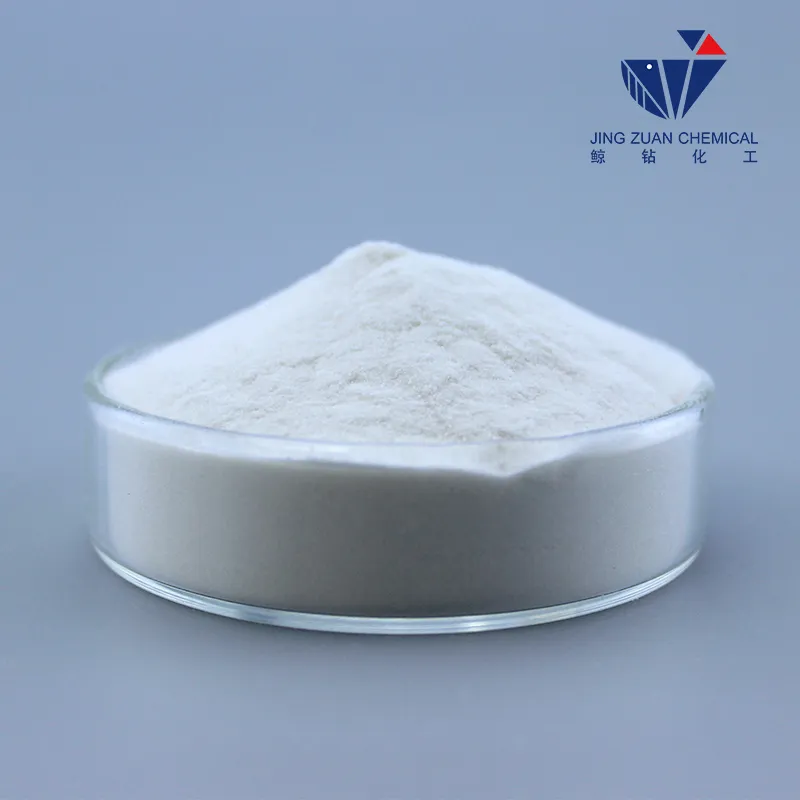
Dec . 25, 2024 13:18 Back to list
propyl methyl cellulose
Understanding Propyl Methyl Cellulose A Versatile Polymer
Propyl Methyl Cellulose (PMC) is a non-ionic cellulose ether that has garnered significant attention in various industries due to its unique properties and multifunctionality. Derived from cellulose, a natural polymer found in the cell walls of plants, PMC is produced through a series of chemical processes that introduce propyl and methyl groups into the cellulose backbone. This modification enhances its solubility and functional characteristics, making it a valuable additive in numerous applications.
One of the key attributes of Propyl Methyl Cellulose is its ability to dissolve in both cold and hot water, depending on its specific chemical composition. This characteristic is crucial for its use in an array of industries, including pharmaceuticals, food, cosmetics, and construction. In the pharmaceutical sector, PMC is utilized as a binder, thickener, and stabilizer in various formulations, including tablets and oral suspensions. Its gelling properties allow for the control of release rates of active ingredients, thereby improving the efficacy of drug delivery systems.
In the food industry, Propyl Methyl Cellulose serves as a thickening agent and emulsifier. It is widely used in various food products, including sauces, dressings, and dairy alternatives, to improve texture and maintain stability during storage. Its ability to form gels at certain temperatures allows for innovative culinary applications, such as creating unique textures in modern cooking, contributing to the trend of molecular gastronomy.
Moreover, PMC is recognized for its role in the production of gluten-free and reduced-fat foods. By mimicking the functional properties of gluten, it helps improve the texture and mouthfeel of bread and baked goods, which can be challenging to achieve without traditional wheat ingredients. This makes it a popular choice for consumers seeking alternative dietary options without compromising on quality.
propyl methyl cellulose

The cosmetic industry also benefits significantly from the use of Propyl Methyl Cellulose. It is commonly found in skincare and personal care products due to its thickening and stabilizing properties. PMC enhances the viscosity of lotions and creams, ensuring a smooth application while preventing the separation of ingredients. Its gentle and non-irritating nature makes it suitable for sensitive skin formulations, promoting its use in a variety of cosmetic products.
In construction, PMC acts as a crucial component in dry-mix mortars and adhesives. Its water-retaining capabilities help to enhance the workability and adhesion of cement-based mixtures, ensuring that they remain workable for extended periods. This quality is especially important in modern construction practices, where time and efficiency are paramount. Additionally, its ability to improve the flexibility and adhesion of building materials contributes to the durability of constructed surfaces.
Environmental considerations also play a role in the growing popularity of Propyl Methyl Cellulose. As a plant-derived product, it aligns with the increasing consumer demand for sustainable and eco-friendly products. Its biodegradability and low toxicity make it an attractive choice for manufacturers looking to minimize their environmental impact.
Despite its numerous benefits, it is essential to consider the regulatory aspects associated with Propyl Methyl Cellulose. Regulatory bodies, such as the Food and Drug Administration (FDA) and the European Food Safety Authority (EFSA), have established guidelines to ensure the safety of PMC in food and pharmaceutical applications. Manufacturers must adhere to these standards to maintain product integrity and consumer safety.
In summary, Propyl Methyl Cellulose is a versatile polymer that plays a significant role across various sectors. Its unique properties, such as solubility, thickening, and binding capabilities, along with its applications in food, pharmaceuticals, cosmetics, and construction, highlight its multifaceted nature. As industries continue to evolve, PMC is expected to remain a critical component in the formulation of innovative products, driving advancements in sustainability and functionality. Its promising characteristics and compatibility with modern production practices underscore its importance in today’s market.
-
Versatile Hpmc Uses in Different Industries
NewsJun.19,2025
-
Redispersible Powder's Role in Enhancing Durability of Construction Products
NewsJun.19,2025
-
Hydroxyethyl Cellulose Applications Driving Green Industrial Processes
NewsJun.19,2025
-
Exploring Different Redispersible Polymer Powder
NewsJun.19,2025
-
Choosing the Right Mortar Bonding Agent
NewsJun.19,2025
-
Applications and Significance of China Hpmc in Modern Industries
NewsJun.19,2025







